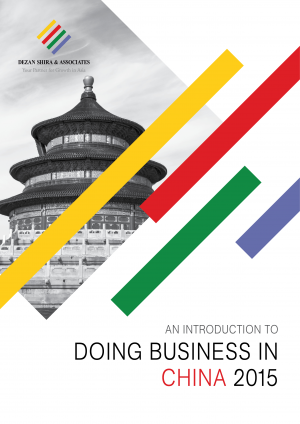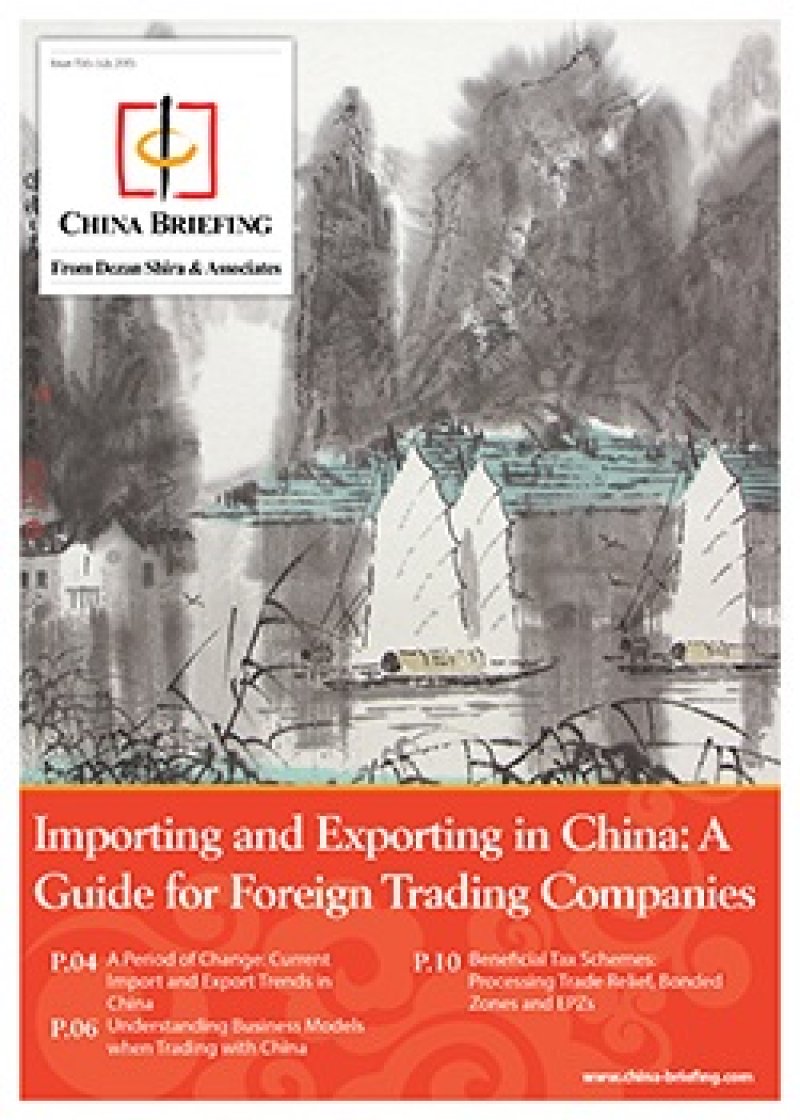China Regulatory Brief: Draft Rules on Online Payment & Paperless Clearance System
China Clarifies Issues Related to the Certificate of Imported Goods
On July 29, the General Administration of Customs (GAC) issued the Announcement [2015] No.34 to clarify matters related to the Certificate of Imported Goods. According to the Announcement, the Customs shall not issue the Certificate to the following goods:
- Goods re-exiting China (e.g., temporarily imported goods, repaired goods, processing trade or leasing trade);
- Exported goods re-entering China;
- Bonded goods entering special customs/bonded supervision areas from outside China; and
- Bonded goods transported between special customs supervision areas and bonded supervision areas.
In the case of importing complete cars and motorcycles, the consignees need to apply to the customs for the Certificate after completion of release formalities for imported goods. This is also the case when importing goods for which it is explicitly required that the Certificate must be issued; when state parties are obliged to issue the Certificate according to international conventions joined or concluded by China; and when importing goods for which the customs have agreed to issue the Certificate.
PBOC Plans to Release Online Payment Rules
On July 31, the People’s Bank of China (PBoC) issued the “Administrative Measures on Online Payment Business of Non-banking Payment Institutions,” which is currently seeking public opinion. The Measures will put more restriction on online payment businesses and online transfer businesses carried out by non-financial institutions. Specifically, the PBoC plans to limit the amount an individual can pay online to RMB 5,000 (US$805) per day through third-party payment accounts, unless the customer’s identity can be verified by a security token and electronic signature. Though the final version has not been released yet, the draft Measures have already caused widespread concerns that it would have a negative impact on China’s third-party payment and internet finance industry.
![]() RELATED: Logging into China’s E-Commerce Market
RELATED: Logging into China’s E-Commerce Market
China Expands the Pilot Program of Paperless Customs Clearance for Automatic Import Licenses
On July 29, the Customs and the Ministry of Commerce have decided to further expand the pilot program of paperless customs clearance for automatic import licenses to ten customs, including the three newly established free trade zones (FTZs) in Tianjin, Fujian and Guangdong. The “Paperless Clearance” system was previously implemented in the Shanghai FTZ.
According to the decision from August 1, 2015, eligible goods (excluding oil and fuel oil) which are subject to the Automatic Licensing system under the “one-batch-one-license” mode (meaning that the same import license can only be used for clearance once) will be exempt from submitting the hardcopy version of the Automatic Import License. The information and licenses of such goods will instead be checked by Customs through the online verification system.
The Automatic Licensing system was implemented by the MOFCOM to monitor the importation of goods falling under the “permitted” category. MOFCOM and the GAC jointly issue a catalog of goods subject to automatic licensing annually. An automatic license needs to be applied for, and the goods’ import contract is one of the required application documents.
|
Asia Briefing Ltd. is a subsidiary of Dezan Shira & Associates. Dezan Shira is a specialist foreign direct investment practice, providing corporate establishment, business advisory, tax advisory and compliance, accounting, payroll, due diligence and financial review services to multinationals investing in China, Hong Kong, India, Vietnam, Singapore and the rest of ASEAN. For further information, please email china@dezshira.com or visit www.dezshira.com. Stay up to date with the latest business and investment trends in Asia by subscribing to our complimentary update service featuring news, commentary and regulatory insight. |
![]()
 An Introduction to Doing Business in China 2015
An Introduction to Doing Business in China 2015
Doing Business in China 2015 is designed to introduce the fundamentals of investing in China. Compiled by the professionals at Dezan Shira & Associates, this comprehensive guide is ideal not only for businesses looking to enter the Chinese market, but also for companies that already have a presence here and want to keep up-to-date with the most recent and relevant policy changes.
Importing and Exporting in China: a Guide for Trading Companies
In this issue of China Briefing, we discuss the latest import and export trends in China, and analyze the ways in which a foreign company in China can properly prepare for the import/export process. With import taxes and duties adding a significant cost burden, we explain how this system works in China, and highlight some of the tax incentives that the Chinese government has put in place to help stimulate trade.
 Revisiting the Shanghai Free Trade Zone: A Year of Reforms
Revisiting the Shanghai Free Trade Zone: A Year of Reforms
In this issue of China Briefing, we revisit the Shanghai FTZ and its preferential environment for foreign investment. In the first three articles, we highlight the many changes that have been introduced in the Zone’s first year of operations, including the 2014 Revised Negative List, as well as new measures relating to alternative dispute resolution, cash pooling, and logistics. Lastly, we include a case study of a foreign company successfully utilizing the Shanghai FTZ to access the Outbound Tourism Industry.
- Previous Article Smoothly Converting from an RO to a WFOE: Employee Transfer and Timing
- Next Article China Regulatory Brief: Company Domicile Registration Requirements & Unified Business License






























